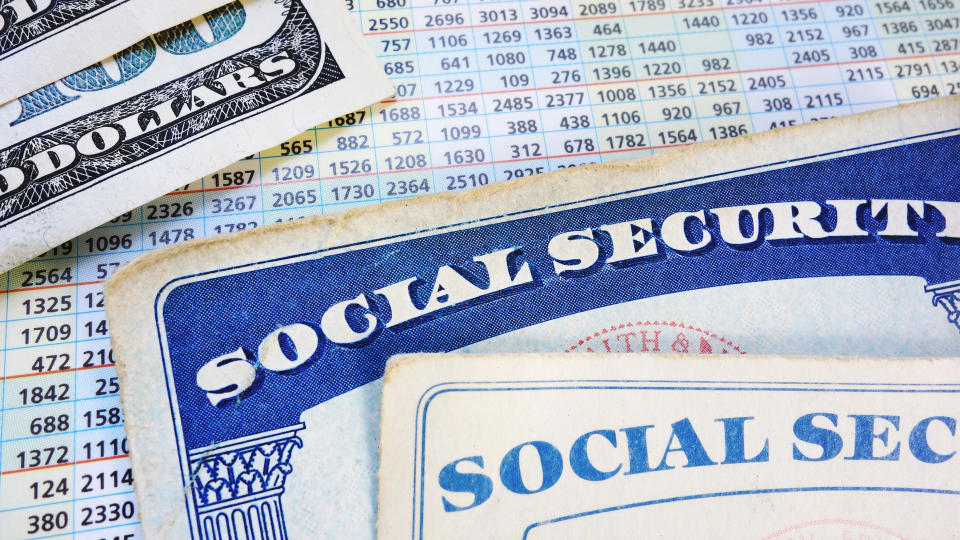I’m a Retirement Planner: Here’s Why You Shouldn’t Rely on Social Security Benefits

For most Americans, Social Security is the core foundation of retirement income. For many, it’s the only income they have during retirement.
Related: 10 States To Avoid If You’re Living on Just a Social Security Check
Learn: 3 Ways To Recession-Proof Your Retirement
Though necessary and important, Social Security benefits can be over-relied upon. It’s not that the program can’t be trusted (though, as we’ll get into, that is an issue), it’s that it simply does not provide enough to smoothly live on — hence why many are forced to keep working during “retirement” in order to get by.
What are some specific reasons that Americans should not rely on Social Security benefits in retirement?
To thoroughly answer this question, GOBankingRates sat down with Jeremy Keil, CFP, CFA, a financial advisor, retirement planning advisor and host of the Retirement Revealed podcast and blog.
Social Security Will Not Replace Your Full Income
Note that Social Security is engineered to replace 90% of your income below roughly $13,000; 32% of your income between $13,000 and $80,000 and then only 15% of your income between $80,000 and $160,000. It will not pay you back any of your earnings above the Social Security maximum taxable earnings of $160,000.
“If you make the average wage of $55,000, expect only 37% of your income back from Social Security at your full retirement age,” Keil said. “If your income is $160,000, expect only 18% of your income back in Social Security payments.”
As such, you cannot rely on Social Security alone to get your retirement income even close to the salary you earned during your working years.
“You need to save on your own,” Keil said, “and the more you make, the more it is your responsibility to save for your own retirement income.”
Take Our Poll: Who Has Given You the Best Money Advice You Have Ever Received?
If You’re Married, When the First Person Dies, Your SS Income Will Drop
If you are married to a fellow retiree receiving Social Security benefits and the higher-earning spouse dies, then the lower-income spouse gets Social Security brought up to the higher amount. But what people often forget is that the lower-income Social Security disappears.
“Unlike a pension, where you can choose to get less income when there are two of you so that you can get a higher survivorship payout for the widow, Social Security doesn’t have that type of ‘survivorship option,'” Keil said. “If one spouse gets $2,000 a month from Social Security and the other gets $1,000 a month then, yes, it’s great that the $1,000-a-month spouse will get the $2,000 a month when the first person passes away. Yet that is a one-third drop in income. You just lost your spouse and now Social Security pays you less money.”
Keil notes that this problem is even more severe for couples who have relatively equal Social Security payments.
“It’s almost like you’re getting punished for having an income equality couple,” he said. “If one spouse gets $2,000 a month and the other gets $2,000 a month, you’ll see that Social Security income drop in half to the widow from $4,000 total to only $2,000 a month total.”
You Can’t ‘Withdraw’ From Your Social Security Account
One possible point of confusion centers around exactly how you can receive Social Security benefits. It’s not a fountain of money you can tap into whenever you like/need to.
“Unlike your 401(k), you can’t borrow against your Social Security balance,” Keil said. “Unlike your savings account or IRAs, you can’t take a big withdrawal out to buy a new car or go on vacation. It’s incredibly important to have saved up during your working years so that you can buy big-ticket items and [pay] unexpected medical bills during your retirement.”
You Can’t Leave Your Social Security Account to Your Spouse or Kids
Also, unlike a pension plan or a 401(k), Social Security doesn’t allow you to add a beneficiary to all the taxes you’ve paid or all the benefits you’ve earned over your working career.
“Thankfully there are programs that provide a survivorship benefit to your spouse and kids, if you die young, or perhaps a widow/survivor benefit if you die in retirement,” Keil said, “but what if you’re single or die just before retirement? You would have paid in all those years and none of your family or friends gets that benefit.”
This issue is of particular importance for those who need Social Security the most.
“The highest-income Americans live on average six years longer than the lowest-income Americans,” Keil said. “While Social Security is designed to pay out a higher percentage of income to those with a lower income, it pays that amount out for a shorter period of time because poor Americans don’t live as long as rich Americans.”
Social Security Is Running Out of Money — and Time
Not to ring alarm bells, but Social Security is only about 10 years away from not having enough money to pay out all of its promised benefits.
“Right now Social Security will no longer have a trust fund to fill in the gap between promised benefits and taxes raised in 2033,” Keil said. “In just 10 years, Social Security will only have 77% of what it needs to payout all of its promised benefits.”
Though Keil thinks it’s highly unlikely that politicians will let benefits get cut 23% instantly, he also recognizes that Social Security is running into issues and that the U.S. “is running out of time and options to fix the problem.”
More From GOBankingRates
This article originally appeared on GOBankingRates.com: I’m a Retirement Planner: Here’s Why You Shouldn’t Rely on Social Security Benefits
